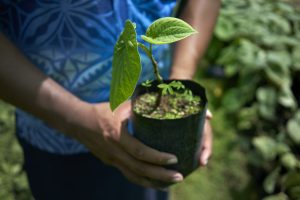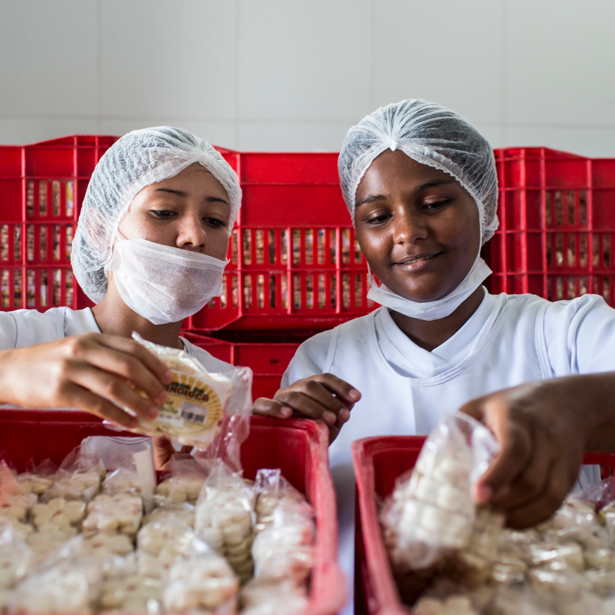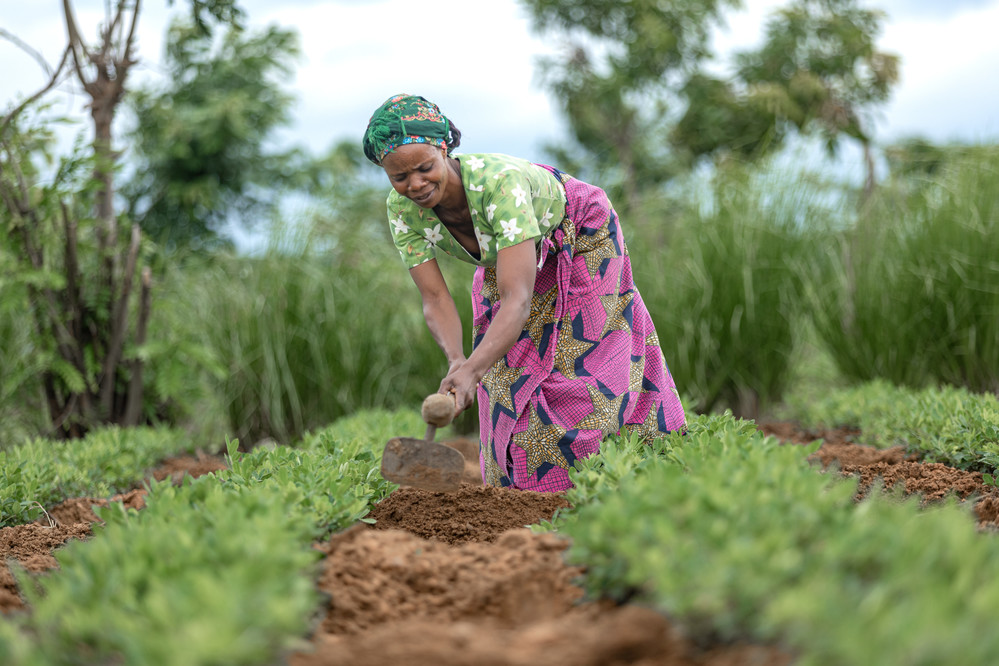According to the World Bank, over 90% of the world’s businesses are small and medium-sized enterprises (SMEs). These businesses are vulnerable to the impacts of the global climate crisis, but they are also key players in addressing them. In the agriculture sector, climate shocks can destroy entire harvests, before and even after they leave the farm. Enterprises along the midstream of agricultural value chains are therefore essential in ensuring that food is produced, processed and distributed in ways that do not further strain our warming planet.
From abandoning synthetic fertilisers to using clean energy for processing and transportation, when SMEs in agriculture embrace sustainable practices, they not only contribute to climate mitigation and adaptation. They build the resilience of entire value chains, communities and economies. But greener agricultural and business practices often come at a cost that hinders growing enterprises that already struggle to access capital to survive.
This Earth Day, we are celebrating how members of the Smallholder and Agri-SME Finance and Investment Network (SAFIN) support agricultural enterprises to embrace greener practices.
1. Scaling alternatives to toxic pesticides
Commercial avocado and macadamia nut farms provide employment and food to local communities in East and Southern Africa. But sucking bugs, which feed on the sap of these crops, have long been a challenge for these farms. In the past, commercial farmers resorted to highly hazardous pesticides to control these complex pests. Such pesticides contaminate surrounding soil and water sources, kill beneficial insects and lead to biodiversity loss. AgDevCo, an Africa-focused impact investor, is supporting avocado and macadamia farmers in Tanzania and South Africa to reduce their reliance on toxic pesticides. Through its Technical Assistance Facility for agribusinesses, AgDevCo has introduced a system of improved pest scouting and trapping techniques to safeguard beneficial insects, and scaled the use of biological and botanical pesticides to preserve local ecosystems.
2. Shifting towards biodiversity-friendly and climate-resilient agriculture
The growing demand for food often leaves the costs and risks of climate events with small farmers and agricultural businesses. Adverse weather effects of El Niño, the ongoing climate phenomenon , has ruined harvests in West Africa and Latin America and Caribbean (LAC), contributing to rising prices of key crops like cocoa and coffee, often with little benefit for the farmers that grow them. Fundación Capital joined a consortium of nine non-profit organizations and research institutions, led by German non-governmental organization , Oro Verde, to turn the tide on this trend through the BioFinCas initiative. The 8-year initiative aims to establish a fair distribution of risks and benefits along the coffee, cocoa and banana value chains in the Dominican Republic, Guatemala, and Mexico through accessible risk financing solutions and favourable policy frameworks to address the impacts of climate change. The project will also build the capacity of farmers and agribusinesses in LAC to adopt biodiversity-friendly practices, and advocate for farmer-friendly conditions within the consumer market in the European Union.

Photo: IFAD/ Todd M. Henry
3. Empowering farmers and small agricultural businesses to invest in climate adaptation
The agriculture sector is a lifeline in East Africa, employing most people and contributing to regional Gross Domestic Product (GDP). Despite that, the sector remains underdeveloped and unprepared for climate change with low productivity and incomes, limited knowledge of climate adaptation practices, low risk management capacity, and limited access to financing. The International Fund for Agricultural Development (IFAD) and several development partners launched a unique blended finance mechanism in Kenya, Rwanda, Tanzania, and Uganda in response to these challenges. The Africa Rural Climate Adaptation Finance Mechanism (ARCAFIM) will support over 300,000 East African households to invest in climate adaptation, through tailored capital and guidance on the economic viability of adaptation activities that small-scale producers can fund through loans.
4. Growing climate-smart agriculture investment portfolios in developing countries
Investing in sustainable agriculture is not easy. It requires a long-term approach, with close attention to the seasonal nature of farming. With their long-term perspective and broad reach in rural areas, public development banks (PDB) in frontier and emerging economies are uniquely placed to provide finance that promotes sustainable agriculture. Agence Française de Développement (AFD) has partnered with public development banks to build their agricultural investment portfolios with climate change, biodiversity protection, and effective natural resource management in mind. AFD provides in credit lines to public banks that finance agricultural SMEs in Mexico, Tanzania, Cuba, Vietnam, and others, providing them with subsidies to target sustainable investments and build a pipeline of bankable investees. They also receive interest-rate subsidies for investment in the least mature, high-risk or high-impact enterprises in these countries. With tailored financial products emerging from these subsidies, agricultural enterprises can access dedicated resources to adopt or scale existing sustainable practices.
Building on SAFIN’s work to share knowledge and expertise around the theme of green finance for agricultural SMEs, the SAFIN Secretariat has partnered with the International Fund for Agricultural Development (IFAD) and the United Nations Environment Programme (UNEP) to compile best practices on the design, implementation and impact monitoring of climate adaptation funds in the sector.
Submit your organization’s experience in climate adaptation funds.

